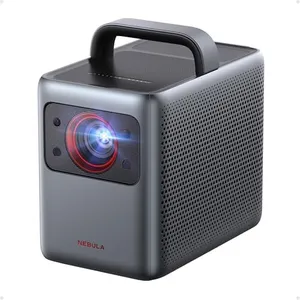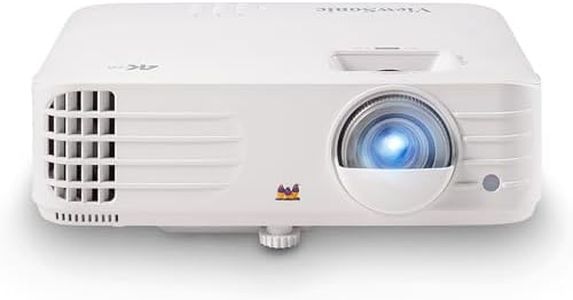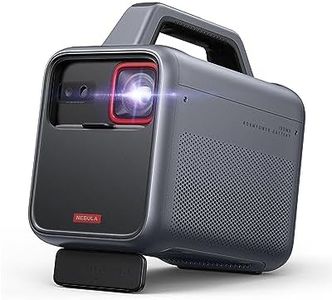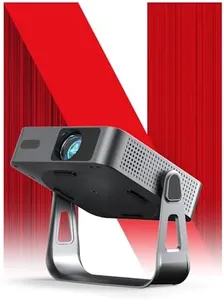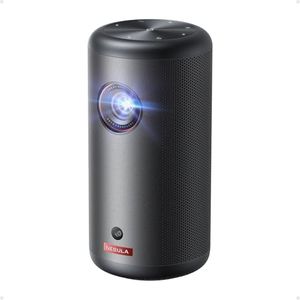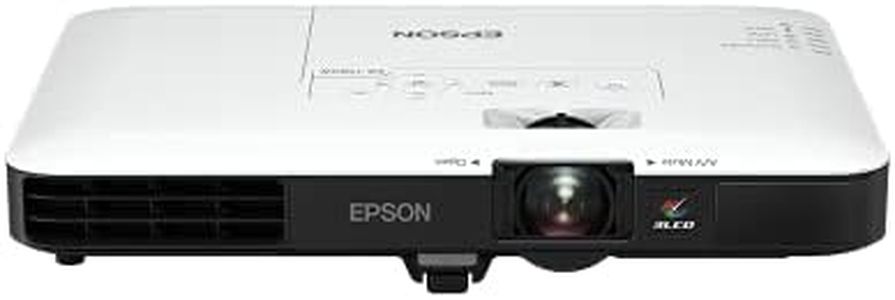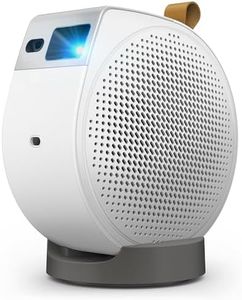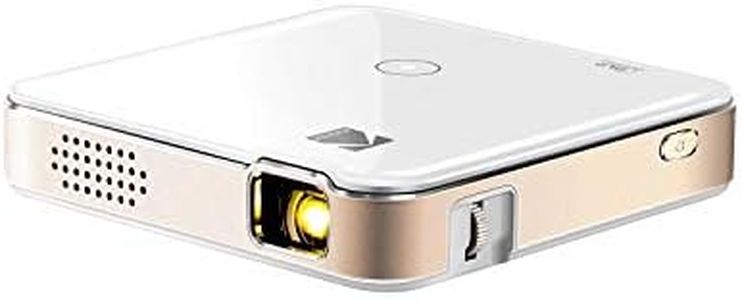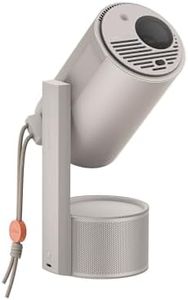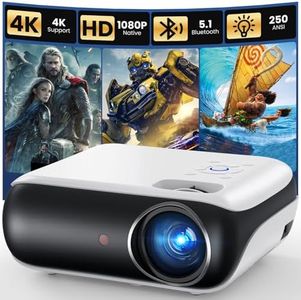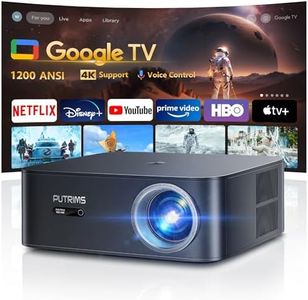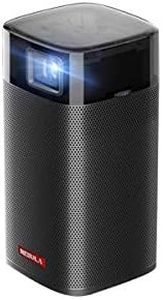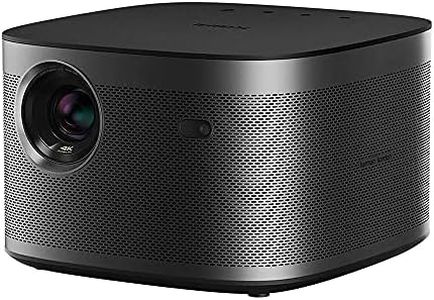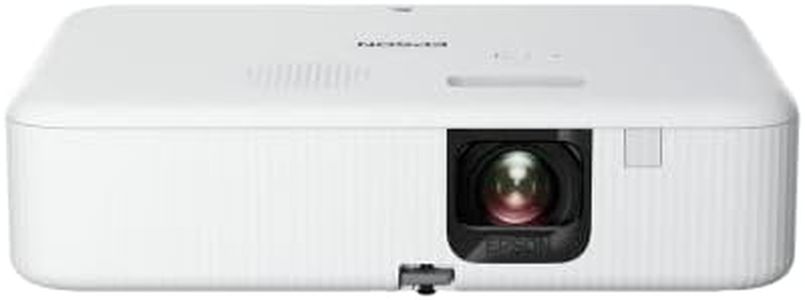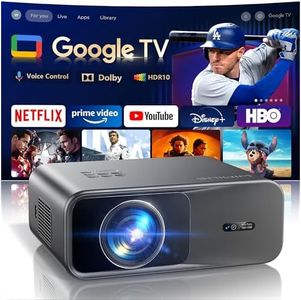We Use CookiesWe use cookies to enhance the security, performance,
functionality and for analytical and promotional activities. By continuing to browse this site you
are agreeing to our privacy policy
10 Best Portable Projector
From leading brands and best sellers available on the web.By clicking on a link to a third party's website, log data is shared with that third party.
Buying Guide for the Best Portable Projector
Choosing a portable projector can be a fantastic way to bring big-screen entertainment or practical presentations anywhere you go. The right model for you depends on where you'll use it, what you'll be watching or displaying, how you plan to connect your devices, and how important portability is for your routine. You should pay close attention to a handful of key features that can have a big impact on your overall experience.Brightness (Lumens)Brightness in projectors is measured in lumens and tells you how well the projected image will show up, especially in rooms or outdoor settings with some light. For use in darker rooms, lower lumens (around 100-500) may be enough, letting you watch movies at night with decent clarity. For spaces with some ambient light or daytime use, a projector with 500-1000 lumens or more will help your image appear clearer. If you plan to use your portable projector both indoors and outdoors, or in places where you can't completely control lighting, higher brightness will give you more flexibility. Consider where you'll use your projector most—the darker the space, the less bright your projector needs to be.
ResolutionResolution tells you how many pixels make up the image, which affects how sharp and detailed the picture will appear. Typical portable projectors range from standard definition (480p), through high definition (720p), to full HD (1080p), and occasionally higher. If you mainly want to watch movies, play games, or share detailed presentations, 720p or above will provide a more pleasant experience with crisper details. If you just need something for basic slideshows or casual content, lower resolutions could be enough and may stretch your battery life. Your choice here depends on how important image clarity is to you and what kind of content you'll display most often.
Portability (Size and Weight)The whole point of a portable projector is to be able to move it easily, so its size and weight matter a lot. Ultra-compact models can fit in your palm or pocket, making them perfect for travel and quick setups, but they sometimes sacrifice features or power. Slightly larger units may be a bit bulkier but offer better visuals and more connection options. Think about whether you’ll be carrying your projector in your bag every day or only occasionally—if you need maximum convenience, smaller and lighter is better. If you'll set it up in different rooms but aren't always on the road, a slightly bigger model could be just fine.
Battery LifeBattery life tells you how long the projector can work away from a power outlet. Some portable projectors offer only an hour or two, while others can last for a full-length movie (2-4 hours or more) on a charge. Shorter battery life can be enough for quick business meetings, but for movie nights or extended use outdoors, longer battery life is much more important. Reflect on your typical use—if you'll mostly have access to power, battery life isn’t a big concern; if you’ll use it on the go, longer battery life will make your experience smoother.
Connectivity OptionsConnectivity refers to how you connect your devices (like phones, laptops, gaming consoles) to the projector. Common options include HDMI ports, USB, wireless casting (like Wi-Fi or Bluetooth), and memory card slots. Some projectors also have built-in apps for streaming. More ports and wireless options mean greater flexibility for connecting different devices. If you want to connect wirelessly or use streaming services directly, look for built-in Wi-Fi and app support. If you mostly plan to plug in a single device, simple HDMI or USB could suffice. Think about what you’ll connect most often and choose accordingly.
Speaker QualityBuilt-in speakers let you hear audio directly from your projector, which is convenient when you're traveling or don’t want to carry extra gear. Portable projectors often have small speakers with limited sound, which is fine for quick use or presentations. For movie nights or larger groups, higher-quality or louder speakers will make a real difference, but you can also connect external speakers if needed. Decide if you need strong sound from the device itself or are okay adding a portable speaker for better audio.
Keystone Correction and Focus AdjustmentKeystone correction helps fix any slant or distortion in your image when the projector isn’t placed directly in front of the screen, while focus adjustment lets you sharpen the picture. Easy and precise controls here make setup faster and ensure you get the clearest possible image wherever you’re projecting. If you'll frequently use your projector in tight or awkward spaces, these adjustment features are especially valuable. If you’ll mostly set it up straight-on, you may not need advanced options.
